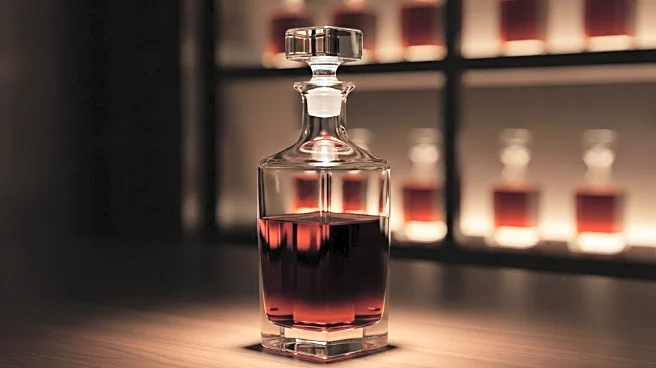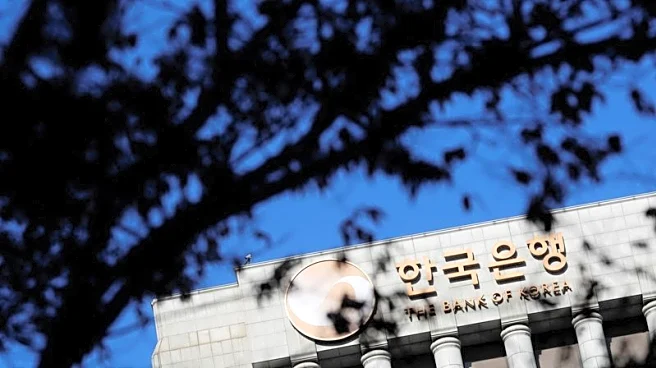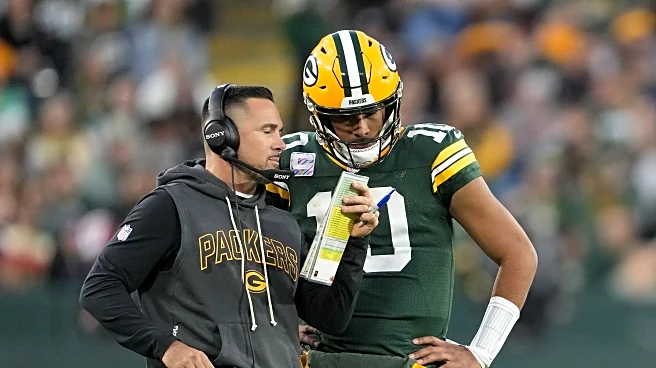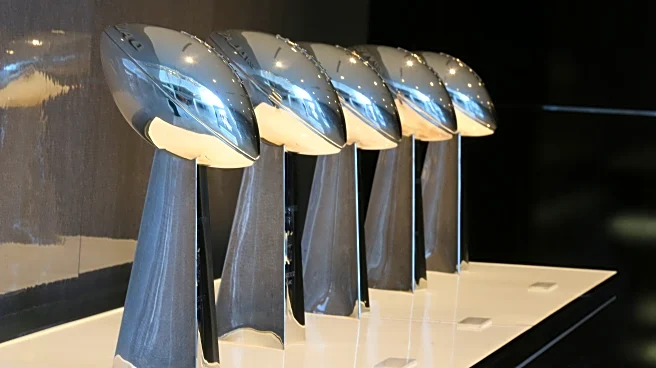What's Happening?
Thieves have stolen 12,000 bottles of craft whiskey valued at nearly $1 million from Westland Distillery in Burlington, Washington. The heist, which occurred on July 31, involved a fraudulent carrier scheme where the perpetrators used fake paperwork to collect the shipment intended for New Jersey. The stolen whiskey includes the rare 10-year Garryana edition, which is highly coveted among whiskey enthusiasts. The Skagit Valley Sheriff's Office is investigating the incident, while the distillery's managing director, Jason Moore, expressed the irreplaceable nature of the stolen bottles. The Garryana whiskey is particularly special due to its aging process in casks made from the Quercus garryana oak tree, native to the Pacific Northwest.
Why It's Important?
The theft of such a significant quantity of rare whiskey poses challenges for the distillery and the broader whiskey market. The Garryana whiskey, known for its unique regional flavors, is a limited edition that regularly wins awards, making it difficult for the thieves to sell due to its recognizability. The incident highlights vulnerabilities in supply chain security and the complexities of the U.S. alcohol distribution system, which restricts secondary market sales. The loss could have severe financial implications for smaller distilleries, though Westland is expected to withstand the setback due to its acquisition by Remy Cointreau Group.
What's Next?
Westland Distillery is focusing on serving its customers and has implemented additional security measures to protect its supply chain. The investigation by the Skagit Valley Sheriff's Office is ongoing, and whiskey aficionados are advised to be cautious of any offers of Westland whiskey outside legal channels. The rarity of the stolen bottles may drive up prices on the secondary market, but selling them could prove difficult due to their distinctiveness.
Beyond the Headlines
The theft underscores the importance of supply chain security in the craft distillery industry, where rare products are highly sought after. It also raises questions about the legal and ethical implications of secondary market sales in the U.S., contrasting with practices in Europe where such sales are more common. The incident may prompt other distilleries to reassess their security protocols to prevent similar occurrences.











